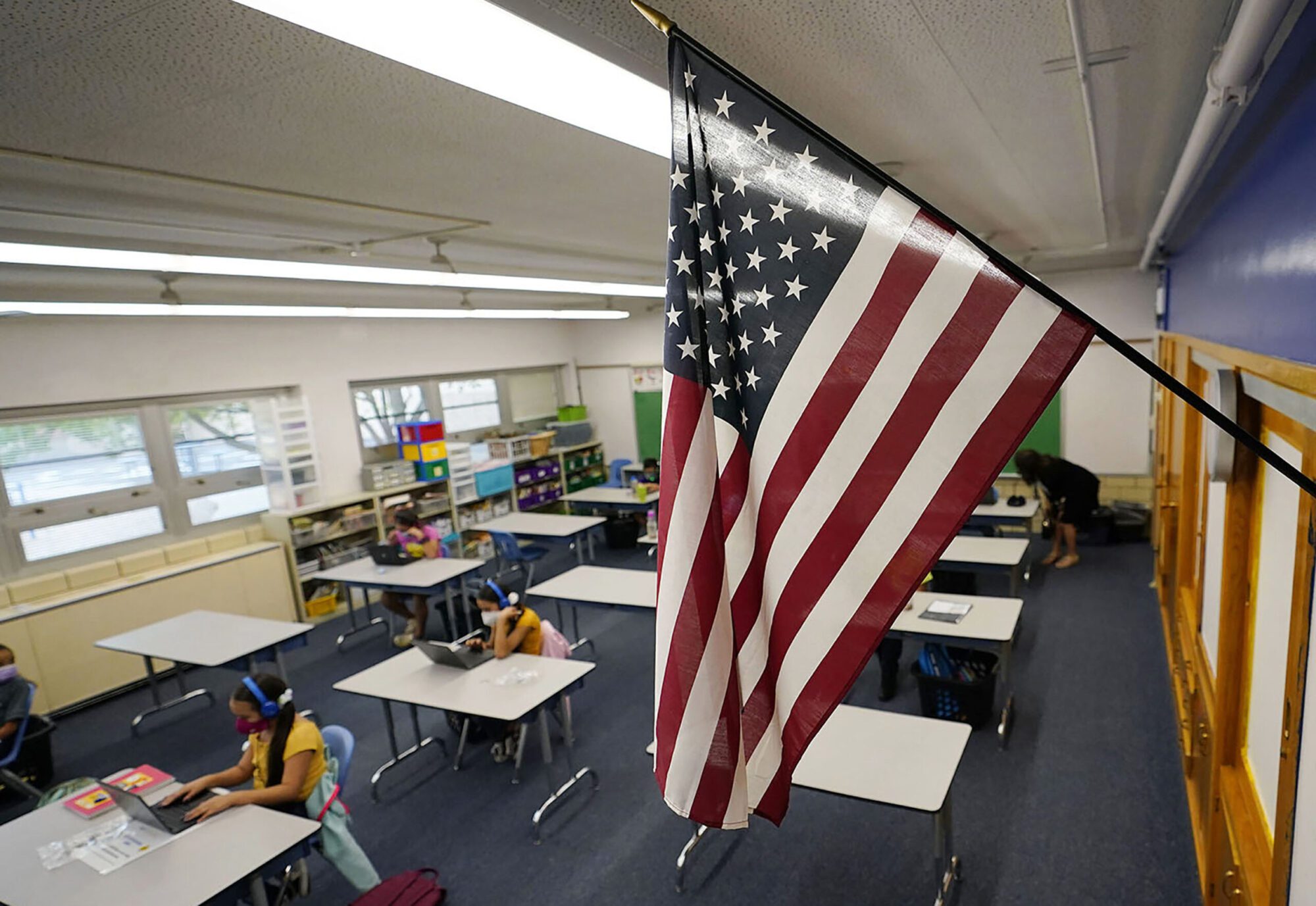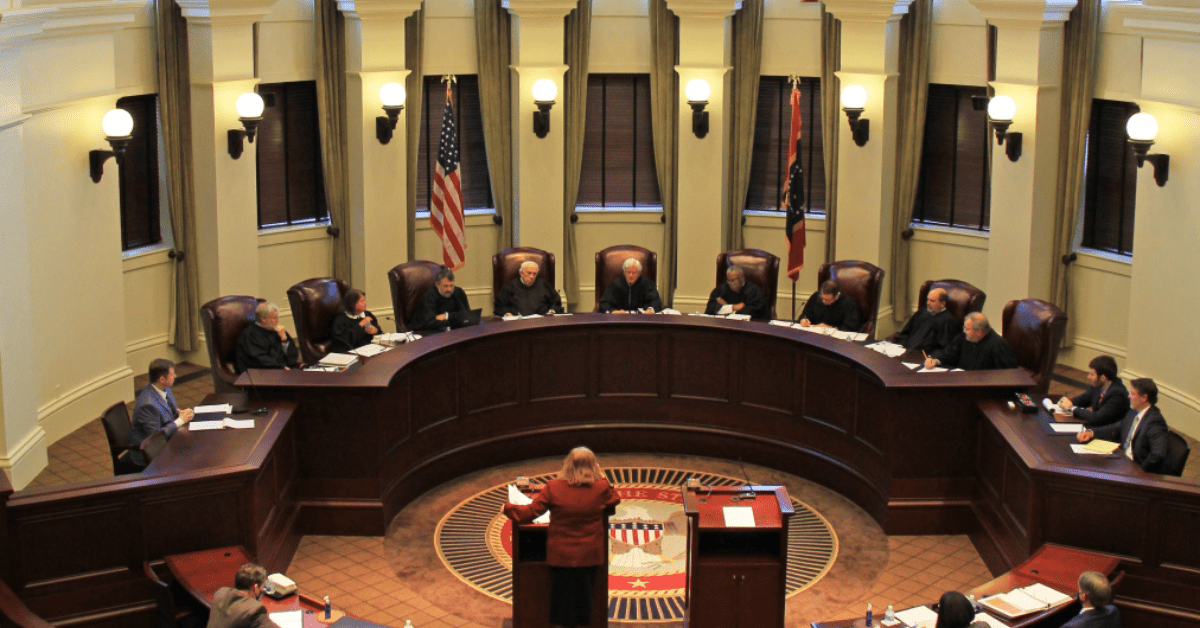
(AP Photo/David Zalubowski, File - August 2020)
Proposed MAEP formula changes, EEF procurement cards for charter schools, and increased school board pay among education bills still alive late in session.
With nearly three weeks left in the 2023 Mississippi Legislative session, lawmakers faced a deadline on Wednesday for original floor action on general bills and constitutional amendments originating in the other chamber.
Any bills that were not taken up by either chamber on Wednesday’s deadline died.
Below are some of the education bills that lived to see another day and are being worked through the process.
Proposed MAEP Formula Changes
This week, the Senate unanimously passed House Bill 1369. The bill proposes several tweaks to the Mississippi Adequate Education Program (MAEP) formula with the goal being to fully fund the budget item.
Under the new proposal, a 20-year rolling average of inflation would be applied to a smaller percentage (25%) of the base student cost. Local contribution requirements would increase from 27 percent to 29.5 percent.
At the current formula rate, it would cost the state $261 million in additional tax dollars to fully fund MAEP. However, the proposed formula changes would reduce that amount to nearly $181 million.
Education Enhancement Fund (EEF) Procurement Cards
EEF cards are state funds allocated directly to teachers for the procurement of authorized classroom supplies, materials, and equipment to support schools.
Passed by both the House and the Senate, House Bill 1173 authorized the State Department of Education to provide EEF classroom supply procurement cards or credentials for a digital solution to eligible teachers employed by charter schools.
Legislation Allowing Educators to Be Armed
This week, the House passed Senate Bill 2079 with a strike-all amendment that replaced its language with that of the House’s language from House Bill 532, the Mississippi School Safety Guardian Act.
The scope and purpose of a School Safety Guardian Program includes responding to an active shooter situation or other situation that would cause death or bodily harm on the school campus or in the immediate vicinity of the school campus.
The school safety guardian training certification process must include a criminal background check and psychological screening. A shooting proficiency test, annual re-certification training, and an instructional course developed by the Mississippi Department of Public Safety (DPS) are also required.
Abstinence Education
House Bill 1390 states that the local school board of every public school district shall adopt a policy to implement abstinence-only or abstinence-plus education or sexual risk avoidance education into its curriculum. The bill states that the instruction in those subjects are to be implemented no later than the start of the 2023-2024 school year.
“Or the local school board shall adopt the program which has been developed by the Mississippi Department of Human Services and the Mississippi Department of Health,” HB 1369 continues. “The State Department of Education shall approve each district’s curriculum for sex-related education and shall establish a protocol to be used by districts to provide continuity in teaching the approved curriculum in a manner that is age, grade and developmentally appropriate.”
The bill clarifies that abstinence-only education shall remain the state standard for any sex-related education taught in public schools.
Mississippi State and School Employees’ Life and Health Insurance Plan Task Force
Senate Bill 2623 has been sent to the Governor and would create the “Mississippi State and School Employees’ Life and Health Insurance Plan Task Force.”
The task force would study, report, and make recommendations on:
- The financial state of the State Health Plan, current reserves and solvency.
- The governance structure of the State Health Plan.
- The plan for rate increases in the future, including the impact to employees and their families.
- Benefits or services for employees received through the State Health Plan.
- A comparison of the State Health Plan and government health insurance plans in other southeastern states, including, but not limited to, their governance structures, benefits or services offered, solvency, reserves and rate structures and increases over time.
- Any other information or recommendation related to the State Health Plan which may be relevant to achieving the goal of ensuring the plan is solvent and results in rates for employees and their families which are competitive with neighboring states and provide access to necessary services.
Revision to Level of Funding HELP Grant and MTAG Programs Eligible Students Receive
House Bill 771 proposed changes to the Mississippi Tuition Assistance Grant program (MTAG) and the Higher Education Legislative Plan for Needy Students (HELP grant).
Authored by State Representative Donnie Scoggins (R), the bill passed the Senate this week as amended.
Originally, H.B. 711 would have expanded the MTAG to full Federal Pell Grant eligible students and adult and part-time students. It would have also doubled award amounts under the program. In regard to the HELP grant, the bill would have reduced the amount awarded to freshmen and sophomores to the average tuition required by public two-year colleges.
READ MORE: Student financial aid opportunities could see major changes on state level
When the bill was before the Senate, State Senator Rita Potts-Parks (R) introduced a strike-all amendment that was later adopted.
“This bill, we would just like to keep it alive and keep working on it, so what we have done is pull the code sections for the HELP and the MTAG forward,” Parks said. “It also has a reverse repealer in it.”
“The team worked very hard over the summer on this to get us a new process, so I’m hopeful you all will vote to keep this alive and let us continue to work on it,” Parks said.
On Friday, the House invited conference on the legislation.
Seizure Training for Public School Staff
The House passed a strike-all amendment for Senate Bill 2333 that inserted the House’s language from the Seizure Safe Schools Act (House Bill 450).
SB 2333 would require each school board to have at least one employee/vendor at each school who has met the training requirements necessary to administer seizure rescue medication for persons experiencing seizure disorder symptoms.
It also adds the House’s language from the Mental Awareness Program for School Act (House Bill 1227) and adds clarifying language for dyslexia training.
Increasing Early Learning Collaborative Funding Levels
House Bill 817 would increase the minimum funding levels for each student enrolled in full-day Early Learning Collaborative Programs to $2,500 and half-day Early Learning Collaborative Programs to $1,250.
Released-Time Moral Instruction Act of 2023
Senate Bill 2361 originally contained language that would have incentivized school districts to adopt a modified school calendar. However, the House inserted language from the Released-Time Moral Instruction Act of 2023 (House Bill 1373).
The House language would authorize local school boards to allow students to receive religious instruction during the school day off school grounds.
Students would be credited for time spent on moral instruction as if they had been in actual attendance in school and would not be penalized for any missed work during that time.
Assistant Teacher Pay
The Senate passed an amended version of House Bill 1365.
The bill states that no school district shall pay any assistant teacher less than the state minimum salary. No school district shall reduce the local supplement or amount paid to an individual assistant teacher by the school district below the state minimum salary from the previous year in a year in which the state minimum salary is increased.
The bill adds that should any school district violate the provisions of the legislation, that school district’s funding shall be reduced by twice the amount of such reduction when computing the district’s allocation of Mississippi Adequate Education Program funds.
However, school districts are authorized to reduce the state minimum salary by a pro rata daily amount where there has been a reduction in adequate education program allocations for the district in such year or where there has been a reduction in the amount of federal funds to the district compared to the amount received from the previous year.
The bill states that nothing shall prohibit any school district from adopting or continuing a program or plan whereby assistant teachers are paid varying salaries according to classroom performance and other similar standards.
Increase Pay of School Board Members
Senate Bill 2749 states that each person serving as a member of the school board of any school district shall receive per diem in the amount of $112 for no more than 36 meetings of the school board during any one fiscal year, or, in his or her discretion, choose to receive the compensation for his or her services an annual salary under the following provisions:
- For a person serving as a member of the school board of a school district with less than 5,000 students enrolled in the school district, the person shall receive an annual salary of $4,000.
- For a person serving as a member of the school board of a school district with at least 5,000 students but less than 10,000 students enrolled in the school district, the person shall receive an annual salary of not less than $4,000 but not more than $5,000.
- For a person serving as a member of the school board of a school district with greater than 10,000 students enrolled in the school district, the person shall receive an annual salary of not less than $4,000 but not more than $6,000.
The Mississippi School Boards Association noted that a similar bill was proposed last year and died at this point in the session.
According to the current law, each school board member is eligible to receive a per diem of $67 for no more than 36 meetings of the school board during any one fiscal year. In the alternative, state law entitles the board member to receive an annual salary of $2,400.











